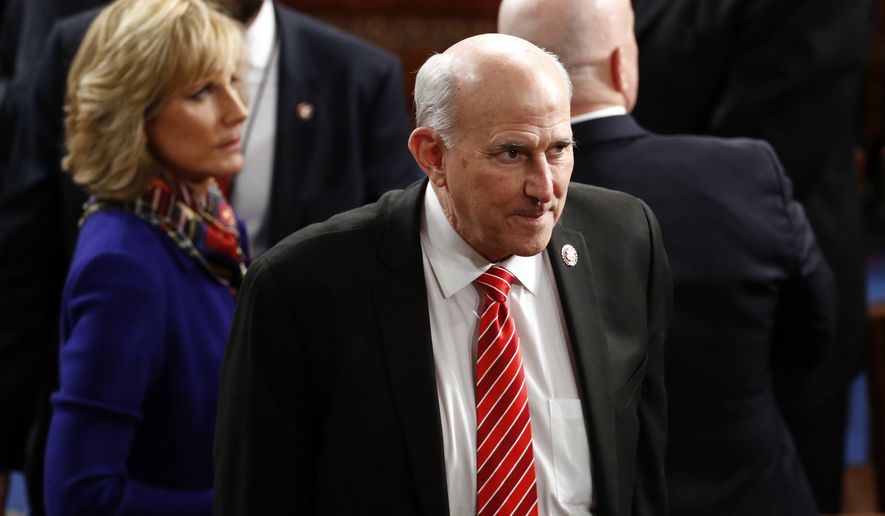The second coronavirus relief package was on its way Monday night to the Senate for final passage as lawmakers in the Capitol tried to balance their responsibilities for leading the country against rapidly escalating health risks.
The House passed an updated version of its bill Monday, including technical changes that nearly derailed the process after objections from Rep. Louie Gohmert.
The Texas Republican said he was concerned about the last-minute tweaks and was unhappy about passing such a large and expensive bill on such short notice.
“I will not give my consent without first reading these very serious changes that will hopefully minimize bankruptcies caused by the virus rather than causing more,” Mr. Gohmert said, before ultimately standing down.
Now both the original bill and the updated version, which reportedly includes new language to aid small businesses, will head to the Senate where they both need to pass before heading to President Trump’s desk.
The president said earlier Monday even more changes could be made to the legislation now that it’s in the Senate.
“They’re [the Senate] working to only enhance it and make it better and it make fair for everybody,” he said. “We may go back and forth a bit with the House on it but both will be in a very positive fashion.”
Earlier Monday, some lawmakers were skeptical of the relief package’s chances in the Senate. On Fox News, Sen. Tom Cotton said the bipartisan bill didn’t yet have the votes.
“I don’t think the House bill is going to pass as written for one basic problem — it doesn’t go far enough and it doesn’t go fast enough,” the Arkansas Republican said.
But four top administration officials, including National Economic Council Director Larry Kudlow and Treasury Secretary Steven T. Mnuchin, came up to Capitol Hill to meet with senators late Monday.
After the closed-door meeting, Mr. Mnuchin emerged and told reporters he expects the package to move through the Senate on Tuesday.
The bill initially passed the House on a 363-40 vote just after midnight on Saturday, after a feverish 48 hours of negotiations between House Speaker Nancy Pelosi and Mr. Mnuchin.
The bill also shores up food security programs for vulnerable communities, like the elderly and children and bolsters state Medicaid programs so health providers can handle an influx of patients.
With the legislation passed the House and headed to the Senate, lawmakers are already talking about getting started on a third coronavirus bill — this time, Republicans are pushing to give an economic break to hard hit sectors, like the airline and cruise ship industries.
The trouble the House has with the challenge to unanimous consent shows the difficultly Congress has in legislating during the coronavirus.
Members — many of whom are older and more vulnerable to the virus — need to come in to vote, but the Centers for Disease Control and Prevention has recommended suspending events of 50 or more people for the next eight weeks. The president on Monday tightened that restriction further: no events for 10 or more people.
The new health guidelines prompted the Senates’ health committee to cancel its scheduled hearing on the coronavirus response this week.
Majority Leader Steny H. Hoyer, Maryland Democrat, advised members to cancel plans to come back to Capitol Hill on Monday and did not have a firm fly-in date. Members will have 24-hours notice if they need to return to D.C. for votes.
Leadership is also considering new policies to try and limit how many members are in the chamber at a time.
Meanwhile, the Senate canceled its recess this week in order to pass the coronavirus bill and FISA reauthorization.
• Gabriella Muñoz can be reached at gmunoz@washingtontimes.com.




Please read our comment policy before commenting.